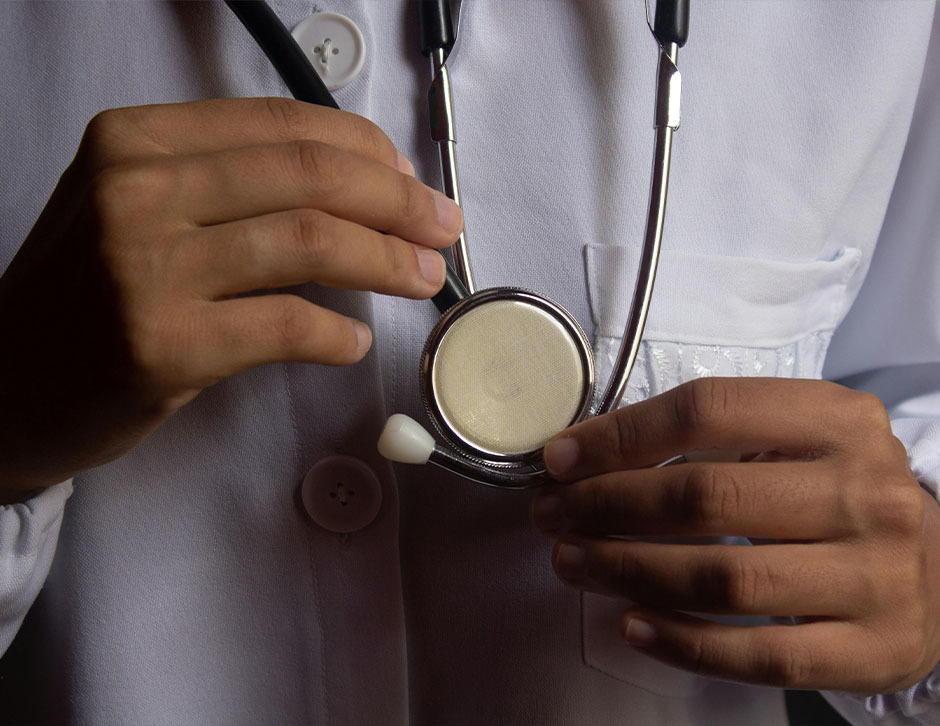
Here’s what we’ll cover in this blog post:
- What is a heart health screening?
- How heart health screenings can catch disease early
- All-in-one testing options like the Core Longevity Panel
When was the last time you checked in on the organ that works around the clock to keep you healthy?
As one of the most vital organs in the body, the heart requires regular care and attention to ensure it’s operating at its best. Heart health screenings provide invaluable insights into your cardiovascular system, empowering you to take control of your well-being and make informed decisions to protect your long-term health.
Why Is Heart Health Screening Important?
Heart disease remains the leading cause of death worldwide, causing up to 1 in 5 deaths each years.
But heart disease is also one of the most preventable diseases, with the World Heart Federation estimating that up to 80% of heart disease is preventable. That means that early detection and prevention is largely within our control, so long as we keep up with regular heart screenings.
Many cardiovascular issues, such as high blood pressure or elevated cholesterol, develop silently over time, often showing no symptoms until a serious event like a heart attack or stroke occurs. When these symptoms do occur, it’s often too late to reverse the damage.
Heart health screenings help detect these underlying risks early, so you can make simple lifestyle changes to reduce your risk or explore treatment options if necessary. By catching heart disease before it develops, you can limit or prevent damage that could become irreversible after time.
What Does Heart Health Screening Include?
Heart health screening typically involves a series of tests and evaluations that measure key indicators of cardiovascular health:
- Blood Pressure Measurement
High blood pressure, or hypertension, is a major risk factor for heart disease and stroke, so measuring your blood pressure with a blood pressure monitor is usually the first step for any heart health screening. Monitoring your blood pressure is also an easy way to reveal early signs of cardiovascular strain at home. - Cholesterol Panel
Cholesterol can build up in our blood vessels and reduce blood flow, causing damage and blockages that contribute to heart disease. But not all cholesterol is bad, which is why cholesterol panels usually measure your total cholesterol, LDL cholesterol, HDL cholesterol, and triglycerides. Imbalanced levels can lead to a buildup that increases the risk of heart disease. - Blood Glucose Testing
High blood sugar levels can indicate insulin resistance or diabetes. Chronically high blood sugar can increase inflammation and damage blood vessel linings,both of which increase the risk of cardiovascular complications. - Heart rhythm
Electrocardiograms (ECG) are a quick test to measure the electrical activity of your heart, including your heart rate and rhythm. The patterns of an ECG can detect patterns that identify damaged parts of the heart, helping healthcare professionals detect arrhythmias (irregular heartbeats) or other abnormalities that are indicative of heart disease
Detailed panels, like the Core Longevity Panel, include in-depth bloodwork to assess heart health markers like blood pressure, cholesterol, and blood sugar, as well as longevity markers including inflammation markers and oxidative stress. This one, simple test assesses many of the same heart health markers that a doctor would test at your annual check-in—all with a quick blood draw scheduled at your convenience.
When to Get Screened
Heart health screenings are beneficial at any age, but become more important as we grow older. The American Heart Association recommends beginning regular screenings as early as your 20s, especially if you have risk factors such as a family history of heart disease or a lifestyle that includes smoking or a lack of physical activity.
Comprehensive panels like the Core Longevity Panel can make heart health screenings a quick tick on your longevity to-do list.
But taking care of your heart starts with understanding your needs, and understanding your needs requires a partnership between you and your healthcare providerHeart health screenings can open that dialogue by providing just the clarity and insights needed to make informed decisions about your health.
By prioritizing your heart health, you’re taking an essential step toward longevity and a vibrant, active life. It’s never too early or too late to put your heart first. Thankfully, we have plenty of resources available to help!
Note: The above statements have not been evaluated by the Food and Drug Administration. This product is not intended to diagnose, treat, cure, or prevent any disease.
